/PAlogo_v2.gif) |
|
Post Reply 
|
Page <1 45678 26> |
| Author | ||||
Surrealist 
Forum Senior Member 
Joined: October 12 2012 Location: Squonk Status: Offline Points: 232 |
 Posted: November 11 2012 at 20:09 Posted: November 11 2012 at 20:09 |
|||
|
There was an avant guard music scene in Seattle post grunge era that thrived for a time.. but lacked chops and virtuosity.
Jazz players often have the chops but keep cooking the same ol kettle of beans. It's the Fripp's and Zappa's of the world that really embrace both.. and is really at the heart of progressive rock music... creativity and virtuosity. Where does creativity come from? |
||||
 |
||||
Dean 
Special Collaborator 

Retired Admin and Amateur Layabout Joined: May 13 2007 Location: Europe Status: Offline Points: 37575 |
 Posted: November 11 2012 at 20:23 Posted: November 11 2012 at 20:23 |
|||
|
|
||||
|
What?
|
||||
 |
||||
progbethyname 
Forum Senior Member 
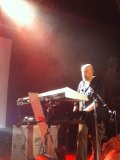
Joined: July 30 2012 Location: HiFi Headmania Status: Offline Points: 7750 |
 Posted: November 11 2012 at 20:31 Posted: November 11 2012 at 20:31 |
|||
Really not sure what you mean here? Creative in the virtuaso sense. Like where did the virtuaso movement start? |
||||
|
Gimmie my headphones now!!! 🎧🤣
|
||||
 |
||||
cstack3 
Forum Senior Member 
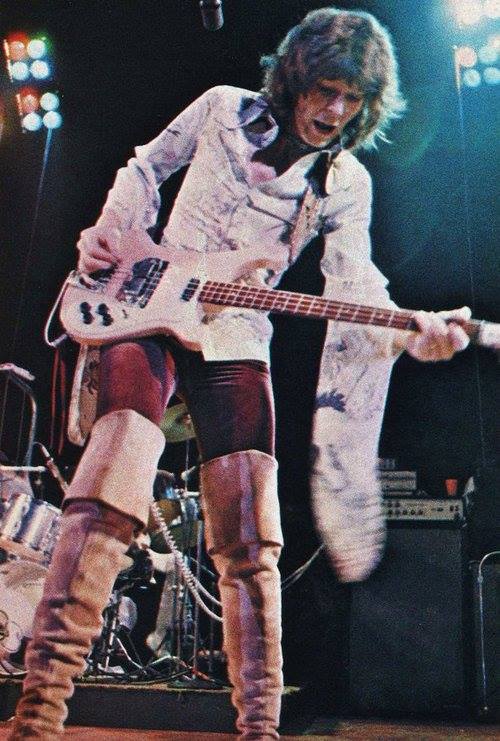
VIP Member Joined: July 20 2009 Location: Tucson, AZ USA Status: Offline Points: 6753 |
 Posted: November 11 2012 at 20:47 Posted: November 11 2012 at 20:47 |
|||
I get your meaning....for example, what motivated Bob Fripp, who was formally trained in "trad jazz" in the British style, to form something as wild as Giles, Giles & Fripp, and then King Crimson? You can always hear his traditional jazz background in his guitar playing if you listen for it. And I hear you about the "same kettle of beans" of the trad jazz crowd! Seems like, when a leader within the culture like Fareed Haque goes off & becomes progressive, he or she gets dissed by their fellows in the jazz community. The classical music crowd are far, far worse. This peer pressure probably dis-incentivizes many musicians from taking a progressive path.
|
||||
 |
||||
Dean 
Special Collaborator 

Retired Admin and Amateur Layabout Joined: May 13 2007 Location: Europe Status: Offline Points: 37575 |
 Posted: November 12 2012 at 02:23 Posted: November 12 2012 at 02:23 |
|||
|
||||
|
What?
|
||||
 |
||||
Ytse_Jam 
Forum Senior Member 
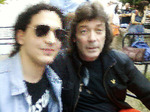
Joined: December 08 2011 Location: Italy Status: Offline Points: 502 |
 Posted: November 12 2012 at 06:43 Posted: November 12 2012 at 06:43 |
|||
what comes spontaneously to ask is, how many modern prog bands you listened to? because it is full of modern prog bands out there who share the same mentality of the classics, of course with a modern sound. the music changes, and classic prog is not the only type of prog. modern bands ain't only epic solos while standing in a white hot spotlight. Take The Flower Kings, Anglagard, Spock's Beard, IQ, or Dream Theater. DT's members are all perfectly trained, they are some of the greatest musicians in the world, and their music is the result of these skills combined like an orchestra. why can't they be considered prog?
|
||||
 |
||||
Surrealist 
Forum Senior Member 
Joined: October 12 2012 Location: Squonk Status: Offline Points: 232 |
 Posted: November 12 2012 at 13:20 Posted: November 12 2012 at 13:20 |
|||
|
The Flower Kings, Anglagard, Spock's Beard, IQ, or Dream Theater. DT's
Dream Theater is Prog Metal. I prefer just the metal part and the prog aspect makes no sense in metal. Metal is meant to be heavy and driving. Bill Ward is all I need from a heavy drummer. Keep the Prog drummer in the Prog band.. not in a metal band. That is like putting Portnoy in a Reggae band. I have seen Dream Theater and Spocks live several times.. Spocks was a very good band early on..but too derivative from the 70's prog bands.. not enough originality for me. The great Prog bands were all so original in their sound.. while using the same paint pod colors. No different than 10 artists dipping into the paint and creating something totally different. My argument is that you don't need to keep changing the actual paint itself to be progressive. ... which is essentially what the digital age has done. My own sister went from being a masterful painter on canvas to a computer graphics artist... photoshop all that silly stuff. Good for some things.. but not for fine art. Same with music. Keep the computers in your office and out of your recording studio. I have heard Flower Kings and Anglagard, and I like both those bands a lot... their earlier stuff at least. I subscribe to Progression Magazine, but don't find much of great interest there too often. There are things I like.. don't get me wrong.. but compared to the great Prog bands like Yes, ELP, Crimson, Tull, Genesis, Gentle Giant, Camel, Floyd, Rush, I don't see anything anywhere in the ball park of that stuff. Where is it? |
||||
 |
||||
timothy leary 
Forum Senior Member 
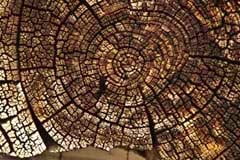
Joined: December 29 2005 Location: Lilliwaup, Wa. Status: Offline Points: 5319 |
 Posted: November 12 2012 at 14:11 Posted: November 12 2012 at 14:11 |
|||
|
Have you seen Echolyn live?
|
||||
 |
||||
Sumdeus 
Forum Senior Member 

Joined: October 23 2012 Location: SF Bay Area Status: Offline Points: 831 |
 Posted: November 12 2012 at 15:51 Posted: November 12 2012 at 15:51 |
|||
pretty much how I feel, but looking back on history and cycles i think another great cycle of music is right around the corner. i feel like for a while everyone's just been focusing on the technology and sh*t like that but i think soon we'll start seeing people who grew up with it and so are very familiar and comfortable with the new devices we have but will also have the passion and creativity to make something interesting. if you look at some of the underground electronic stuff you can already see it moving away from standard dance music to something more ambitious. i also decided to kinda try and take things into my hands in some ways which is why I'm focusing on music tons now. it might be silly dreams or too much confidence but I think that if all goes well I could play a role in ushering in a new era of music that's both progressively interesting and genuinely expressive. of course like i said i admit the possibility of this just being wishful thinking but hey it's possible. i'm only 18 and i think my current works show a lot of potential, once i get a full band of similar minded people i think it'll really start coming together |
||||
 |
||||
HackettFan 
Forum Senior Member 
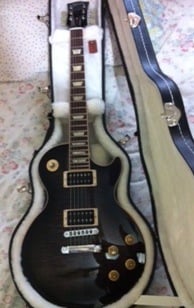
Joined: June 20 2012 Location: Oklahoma Status: Offline Points: 7946 |
 Posted: November 12 2012 at 17:21 Posted: November 12 2012 at 17:21 |
|||
|
I enjoyed that. Thank you.
|
||||
 |
||||
Surrealist 
Forum Senior Member 
Joined: October 12 2012 Location: Squonk Status: Offline Points: 232 |
 Posted: November 12 2012 at 19:45 Posted: November 12 2012 at 19:45 |
|||
|
Sumdeus...
You have already made a difference just thinking that way. It's not wishful thinking. Make it happen. Keep it interesting at every level and keep it real and you will not go wrong. |
||||
 |
||||
cstack3 
Forum Senior Member 

VIP Member Joined: July 20 2009 Location: Tucson, AZ USA Status: Offline Points: 6753 |
 Posted: November 12 2012 at 23:32 Posted: November 12 2012 at 23:32 |
|||
Not "formally," as in a university education, but as in being taught the fundamentals of jazz theory, mechanics of playing the instrument, theory & composition. From Wikipedia: Fripp began playing guitar at the age of eleven.[24] When he started, he was tone deaf
and had no rhythmical sense, weaknesses which led him later to comment
"Music so wishes to be heard that it sometimes calls on unlikely characters to give it voice."[25] While being taught guitar basics by his teacher Don Strike,[26][27] Fripp began to develop the technique of crosspicking, which became one of his specialties.[26] Fripp teaches crosspicking to his students in Guitar Craft.[28] Fripp has also mentioned in interviews that his first guitar had such a high string action that it gave him a "musculature that was difficult to control" in later playing on the Les Paul. His cross-picking allows him to play things that none of his peers even attempt ("Fracture" from SABB for example). More on Bob's early guitar lessons are at this link: http://www.elephant-talk.com/wiki/Interview_with_Robert_Fripp_in_Rock_and_Folk Don's teachings were based on the Big Bands of the 20's. A multi-instrumentalist, he also mastered Hawaiian guitar, banjo...His wife would often appear in a flashy skirt to do a little hula-hoop...A real character who taught me a great deal by connecting me to tradition. ....An old-time jazz purist like Joe Pass would've been able to play "Fracture," but not many rock guitarists. I'm fairly certain Howe couldn't pull it off. Edited by cstack3 - November 12 2012 at 23:39 |
||||
 |
||||
Surrealist 
Forum Senior Member 
Joined: October 12 2012 Location: Squonk Status: Offline Points: 232 |
 Posted: November 13 2012 at 00:11 Posted: November 13 2012 at 00:11 |
|||
|
Howe plays things no one else can play... Fripp oddly enough is a huge Robin Trower fan.. and commented on his amazing ability to use vibrato far beyond his contemporaries.
Who is the "Robin Trower" of today? John Mayer? Is that where Blues has progressed?... because things change and this is the new sound people want to hear? Where is Bob Marley? Joni? Jaco? Miles? |
||||
 |
||||
Thandrus 
Forum Senior Member 
Joined: February 05 2007 Location: Georgia Status: Offline Points: 402 |
 Posted: November 13 2012 at 00:49 Posted: November 13 2012 at 00:49 |
|||
|
I think massive analog to digital transition circa 1980 played the crucial role. Keyboards-based bands had hard time adjusting their sound to those trite and superficial early digital synths. Some time had to pass for a compromise form to emerge (neo prog).
BTW, I think that decline affected almost exclusively the Key-based bands. The major guitar-dominant went through this time quite unaffected (King Crimson) some even having their best moments (Rush and emerging arena rock NWOBHM scenes, that shared something with prog). On the contrary, punk rock influence seems totally overhyped to me. I don't think it did much to progressive rock per se. From the late '76 to '78 there were a string of classic releases from classic prog bands and most were commercially the most successful for them.
|
||||
 |
||||
rogerthat 
Prog Reviewer 
Joined: September 03 2006 Location: . Status: Offline Points: 9869 |
 Posted: November 13 2012 at 01:02 Posted: November 13 2012 at 01:02 |
|||
Well, there is the excellent guitarist Derek Trucks. And oddly enough, the amazing Stevie Ray Vaughan was active in the 80s...the very decade you seem to loath so much. |
||||
 |
||||
progbethyname 
Forum Senior Member 

Joined: July 30 2012 Location: HiFi Headmania Status: Offline Points: 7750 |
 Posted: November 13 2012 at 01:11 Posted: November 13 2012 at 01:11 |
|||
Is about survival. RUSH is a great example by how they rode the coat tailes of synth in the 80's electric circa which for them began in 1981 and lasted till 1987. Went back to a more guitar based rock sound in 1989 with Show and tell. Rush did a great job adapting with new sound movements. Personally, my favourite albums of Rush's are all from the 80's. Amazing stuff indeed. It was fight or flight because there is noway RUSH would have remained popular if they kept releasing albums like HEMISPHERES. It's true. 
|
||||
|
Gimmie my headphones now!!! 🎧🤣
|
||||
 |
||||
Dean 
Special Collaborator 

Retired Admin and Amateur Layabout Joined: May 13 2007 Location: Europe Status: Offline Points: 37575 |
 Posted: November 13 2012 at 02:37 Posted: November 13 2012 at 02:37 |
|||
"I clearly remember the moment of insight into cross-picking while practicing Dick Sadleir’s Study In 3/4 in the homework / study room at our home above the Welch & Lock office, 14, Leigh Road, Wimborne. I had recently begun guitar lessons with Don Strike at Westbourne Arcade & this was my set piece for the week. Age, probably thirteen. Rather than plonk away at the chords, there it was – arpeggiating them by cross-picking. This was the beginning of my right hand."
Don Strike Music is a small musical instrument shop in Westbourne, Dorset, (it's still there, unchanged since the 1920s), Dick Sadlier wrote dozens of books on learning a musical instrument, (still in print), none of them "Trad Jazz". Fripp had guitar and music lessons, that's all documented in his biography where he had lessons from Kathleen Gartel, Don Strike and Tony Alton, who taught the mechanics of playing the instrument, theory & composition and that would have covered many styles of music, none of them were specifically Jazz oriented.
Edited by Dean - November 13 2012 at 02:37 |
||||
|
What?
|
||||
 |
||||
moshkito 
Forum Senior Member 
Joined: January 04 2007 Location: Grok City Status: Offline Points: 16163 |
 Posted: November 13 2012 at 09:50 Posted: November 13 2012 at 09:50 |
|||
I'm not sure this is true, or correct. Robert is versed a lot more in the experimental traditions that break down music, and are NOT jazz oriented. Those traditions, tend to break down all music to its "nothing-ness", which is a very Gurdgieff'ian idea ... which Robert would be familiar with. Gurdgieff's exercises and ideas, have been usd in film and theater (Peter Brook) and many musicians, who have not mentioned it, or, perhaps, it is just too difficult to explain, and not worth the time and effort -- specially in a place like this, where popular ideas and culture rule!
Robert's experiments, specially with ENO are interesting and quite free form ... however, you and I might conclude, since you can see it on his website, that this man is so note conscious, that he needs ENO to simply get ... something else conscious, instead of not! But to me, the "clinical" side of the notes in KC is what it became after the first album! Rinse and repeat! Rinse and repeat!
English improvisational styles are very theater oriented -- for lack of a better term -- and that would mean in my own words, that it would be based on an idea, or concept ... and you work your way all around it ... sort of ... there is a table here on the stage, and you walk around it 50 times and then find which spots, or details you can do with the table make it easier to deliver your lines ... sit, spit, hands on, off, kick the chair ... numberless moments you can play with during the time you have to deliver your lines! ... you can not tell me that this can not be done with music ... unless the musician is not a musician, in which case that person would like do even more, up to and including hammering the instrument on the table! What the National Theater and the Royal Shakespeare Company were doing in the late 60's and early 70's was MASSIVE ... and for anyone here to say that musicians are blind, stupid, and do not know what happens in their backyard ... is nuts! C'mon ... even Marianne Faithfull did a couple of things in those theaters! And Julie Christie ended up spending time with Brian Eno ... and she was also around the house of the Beat Poets, and many others ... all of whom show up in "Tonite We All Love in London" ... (Soft Machine's turn was taken out! -- but was the one moment that would have been more important!) ... and yet ...we sit here ... and ignore the time and the place!
It's hard to compare the literary status of that group ... with ... let's say ... Dream Theater and its thing ... sorry ... doesn't make DT bad ... but the literary content is ... not really good by comparison, and at times could be considered ... "pedestrian" as so many upper class snobs love to call stuff that they don't like.
If you get the chance ... sit down and compare the experimentations and designs of the music ... between English, French and German ... and those are 3 completely different, far out ... and totally different ways of doing things ... but it's hard not to say that Robert Fripp is too note conscious ... to go more freeform ... oh his own ... btw ... he is quite different as a solo artist and one great reason why some of his stuff is so good for meditation ... he knows that a "chord" should not be used and makes a point of not worrying about "his fingers" and their placement ... but that would be hard, when you are a hard coded guitarist and one of the most intelligent note-writing musicians out there in the business!
How do you de-code that? ... Edited by moshkito - November 13 2012 at 12:10 |
||||
|
Music is not just for listening ... it is for LIVING ... you got to feel it to know what's it about! Not being told!
www.pedrosena.com |
||||
 |
||||
Dean 
Special Collaborator 

Retired Admin and Amateur Layabout Joined: May 13 2007 Location: Europe Status: Offline Points: 37575 |
 Posted: November 13 2012 at 10:40 Posted: November 13 2012 at 10:40 |
|||
|
||||
|
What?
|
||||
 |
||||
jude111 
Forum Senior Member 
Joined: October 20 2009 Location: Not Here Status: Offline Points: 1741 |
 Posted: November 13 2012 at 11:24 Posted: November 13 2012 at 11:24 |
|||
The classical ages of blues, jazz, fusion, rock, punk, and prog have all passed. It's now the middle of (or perhaps the tail-end of) the classical age for hip-hop, techno, and related genres. Digital music for a digital age.
|
||||
 |
||||
Post Reply 
|
Page <1 45678 26> |
| Forum Jump | Forum Permissions  You cannot post new topics in this forum You cannot reply to topics in this forum You cannot delete your posts in this forum You cannot edit your posts in this forum You cannot create polls in this forum You cannot vote in polls in this forum |